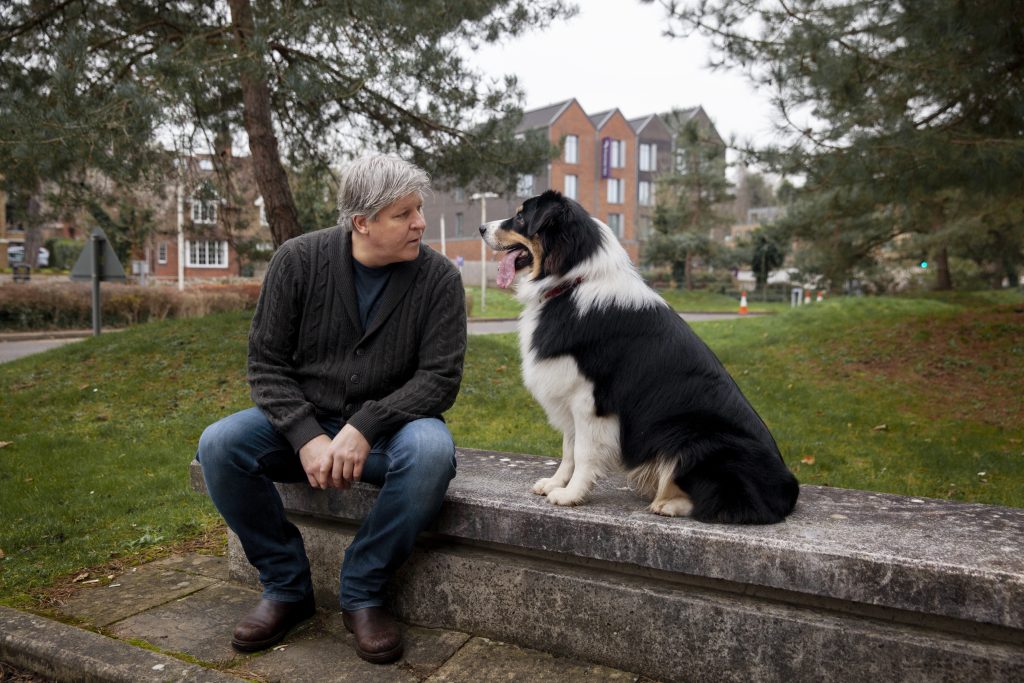Dogs are man’s best friend; for centuries, they’ve been a staple in many families. However, as with any animal, there is always a chance that one might develop dementia. This article will look at the eight signs of dementia in dogs and discuss whether or not pit bulls are particularly susceptible to developing the condition.
Memory loss
Memory loss can occur for several reasons, but it is most commonly caused by age. As we get older, our memory and cognitive abilities decline. This decrease in memory can be gradual or sudden and may not always be evident to the owner.
Dogs with dementia may not show any outward signs of the disease but may have difficulties performing basic tasks such as walking and chewing. They also might become agitated or aggressive if their mental state deteriorates further. Suppose you notice any changes in your dog’s behaviour. In that case, it is essential to take them for a checkup so that their condition can be appropriately assessed and appropriate treatment started if necessary.
Many treatments are available for dogs with dementia, including medication and rehabilitation therapies. If left untreated, however, dementia can often progress until the dog dies from its symptoms or is euthanized because of them.
So while, luckily, this type of illness is relatively rare in dogs compared to people (approximately 1 out of every 5 thousand people experience some form of Alzheimer’s), it’s still important to keep an eye out for the early signs so that your pet doesn’t suffer from this debilitating condition
Changes in diet or activity level
One common cause of dementia in dogs is a change in their diet or activity level. This can be caused by several factors, such as an owner’s age, health conditions, or medications they may be taking. If you notice any of the following changes in your dog’s behaviour or appetite, it might be an indication that he has dementia:
1. Changes in mood and energy levels
2. Poor recall of basic commands
3. Lack of interest in favourite activities
4. Unusual chewing or pacing behaviour
5. Sleeping more than usual or not at all
Aggressive behaviour
Dogs are man’s best friend, but that doesn’t mean they don’t get dementia. In fact, according to a study published in the journal Neurology, there are a lot of signs that your dog may be showing aggressive behaviour. The study found that this type of dementia is on the rise and can affect any breed or size of the dog. Here are three key signs:
1. Your dog is starting to become more aggressive towards people and other animals
2. Your dog has lost his appetite or is displaying other changes in behaviour that suggest he’s struggling to cope with stress
3. You’ve noticed an increase in aggression towards members of your family or other dogs within the neighbourhood
Difficulty walking, jumping or climbing stairs
If your dog has difficulty walking, jumping or climbing stairs, it may indicate dementia. Dementia can affect any dog breed but is more commonly seen in elderly dogs and those with physical disabilities.
There are many ways to detect early signs of dementia in dogs and get them the treatment they need. Here are four essential tips:
1) Monitor your dog’s behaviour regularly to see if any changes suggest their health declines. Changes could include an increase in trouble sleeping or losing weight; poor appetite or not eating at all; decreased energy levels; restlessness or aggression; diminished Consortium (activity together); wandering off from home excessively or not returning when called; becoming less interactive with you, other family members or pets; inappropriate urination/defecation habits etc. If you notice these changes in your pet’s behaviour, take him for a checkup as soon as possible
2) Equip yourself with the right tools to assess your pet’s cognitive function, including an animal cognition test such as the RAT-Q (revised Alzheimer’s Test Q), which evaluates memory ability (‘Do new objects resemble familiar ones?’),
problem-solving (‘How do I turn on the TV?), spatial awareness (‘Can you find food hidden behind a cabinet’), social interaction (‘Does he seem to enjoy being around people?’) and learning ability (eagerness to learn new commands). A practitioner will also administer a neurological exam and perform blood.
Fussy eating habits
Fussy eating habits are one of the first signs that a dog may develop dementia.
Dogs that are picky eaters often have a hard time eating regular dog food.
Dogs that are picky eaters may not be able to stomach new foods.
Dogs that are picky eaters may lose weight or become weak.
changes in sleeping patterns
Many believe pit bulls are resistant to dementia, but this isn’t always the case. One study found that dogs belonging to a particular pit bull breed (the American Staffordshire Terrier) are more likely to develop dementia than other dogs.
The study was conducted by researchers at UC Davis and used data from the Dog Cognition Project, an online resource for researchers studying dog cognition and behaviour. The team looked at information collected from 468 cases of canine cognitive impairment (CCI), including 340 pit bulls — 160 American Staffordshire Terriers and 228 Staffordshire Bull terriers.
They found that while all breeds of dogs were affected by CCI in some way, pit bulls were three times as likely as any other breed to be diagnosed with full-blown dementia. Based on their findings, it would not be incorrect to say that pit bulls get dementia!
Some common signs of dementia in dogs are changes in sleeping patterns, lack of interest in activities they once enjoyed, and wandering – all behaviours seen more often among pit Bulls suffering from CCI. Pit Bulls may also start to drool excessively or become aggressive when approached.
If you notice any changes in your pet’s typical behaviour or mood – especially if these changes seem unrelated to environment or stress – it might be worth scheduling a veterinarian visit just for peace of mind.
Loss of interest in favourite activities
Dogs are known for working together and bonding with their owners. As such, it is not surprising that many dog owners notice changes in their pet’s behaviour when they experience signs of dementia.
Signs of dementia in dogs can include a loss of interest in favourite activities and changes in eating habits. Dogs may stop eating or drinking as much or start to eat very little, which can indicate a change in appetite or gastrointestinal problems.
Mood changes may also occur as the dog becomes more irritable or agitated than usual. Other symptoms may include decreased mobility, difficulty following directions, and confusion about where they are or what time it is. If you suspect your pet might be experiencing any cognitive issues due to age-related memory problems or other neurological issues, please consult your veterinarian for further investigation and care recommendations.
Decreased agility or coordination
Agility and coordination are critical skills for dogs that need to run and play. As these activities become more complex, they may indicate dementia or another disease.
A decreased agility or coordination can signify several diseases, such as arthritis or brain cancer. However, the decrease in agility or coordination may become more noticeable over time. So if you notice your dog losing its ability to navigate obstacles quickly, jump high into the air, circle objects repeatedly, or respond to commands consistently, it’s essential to consult a vet.
The following signs may suggest your dog has Alzheimer’s Disease:
- Decreased mobility.
- Changes in diet (elevated levels of fat).
- Increases in aggression.
- Loss of interest in playing games.
- Reduced activity level.
- Impaired recall memory.
- Inability to focus on tasks at hand.
- Lack of verbal communication (although some breeds seem less likely than others to develop this symptom).
Conclusion
We wanted to provide our readers with information on whether pit bulls can get dementia. After reading through the signs above, people must be aware of the potential risks associated with this type of animal. If you’re concerned about your pet and want to take steps to protect them, be sure to talk to your veterinarian.

